‘My mother always said don’t marry for money – divorce for money,’ goes a quote attributed to US comedian Wendy Liebman.
Nowhere is that more true than in England and Wales, where some of the world’s wealthiest couples come to settle their differences after calling an end to their marriages – and sometimes, even before.
Divorce laws permit people who have foreign marriages to file for a split regardless of where it was registered – and can also launch bids for financial relief even if the divorce was granted abroad.
There are legal tests to overcome, largely revolving around at least one of the parties being habitually resident or domiciled in either country for a period of time.
But should a test be met, those who are less well off than their spouses can take advantage of what experts say are some of the most generous settlement principles in the world.
Judges in divorce cases adhere to the principle of non-discrimination, meaning a homemaker is generally regarded as having contributed equally as much to their marriage as the breadwinner, regardless of financial status.
This means lesser earners stand a good chance of being handed a share of their partner’s assets to ensure they can continue living to a reasonable standard – sometimes rushing to ensure the divorce is heard here rather than somewhere else.
‘England and Wales are considered to be the most generous jurisdiction for the financially weaker party,’ Stacey Nevin, a partner and mediator within the family department of law firm Kingsley Napley, told MailOnline.
‘It can sometimes be quite easy to attach yourself to this country for the purpose of divorce proceedings, so it’s not uncommon to find that one party’s preference is to get divorced here because the outcome can be significantly better (for one party).’
Combined, it goes some way to explaining why so many wealthy figures from abroad seek divorce here (or are made to), turning London’s courts into a battleground for some of the most expensive – and bitter – divorce battles in the world.
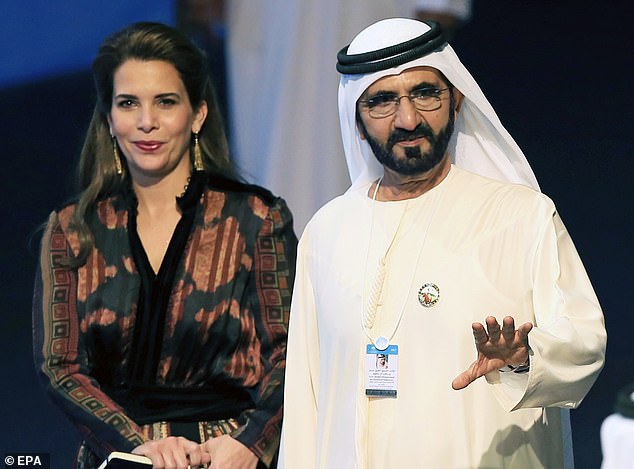
Sheik Mohammed bin Rashid Al Maktoum, ruler of Dubai, with his ex-wife Princess Haya bint Hussein of Jordan
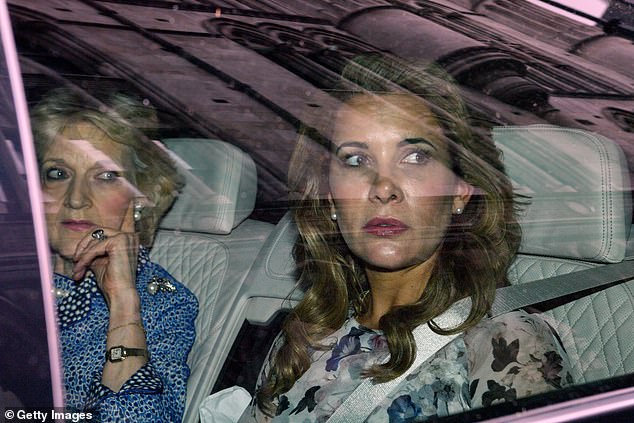
The princess (right) employed the fearsome Baroness Shackleton (left) to represent her during what became the most expensive divorce settlement in British legal history
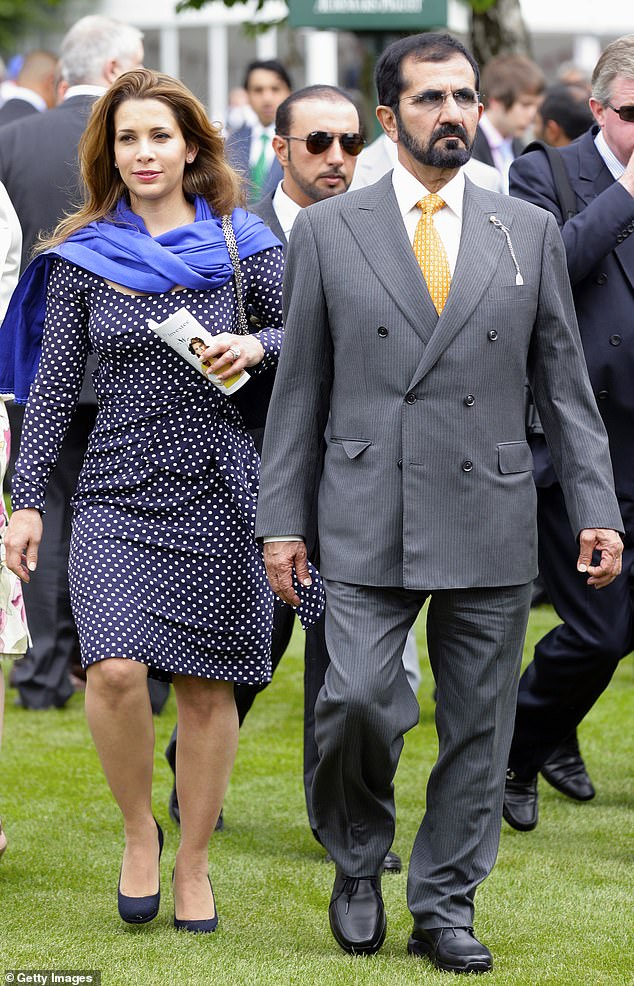
The Sheikh reportedly filed for divorce in 2019 – prompting the Princess to flee to the UK fearing for her safety (pictured in 2012)
The Dubai ruler’s record split with his second wife
Sheik Mohammed bin Rashid Al Maktoum has a reputation for being hard-nosed and uncompromising when confronting political adversaries on the international stage.
The Scotland-loving ruler of Dubai, however, had to compromise to the extreme after he was sued by the second of his six publicly known wives.
Princess Haya bint Hussein of Jordan was awarded £554million by the High Court after judges ruled that her ex-husband had probably conducted a campaign of harassment and intimidation prior to their 2019 divorce.
The settlement included a £251m lump sum, with another £290million to pay for maintenance for her two children Jalila and Zayed for the rest of their lives.
Much of the bulk sum is being spent on security arrangements after judges ruled that, on the balance of probabilities, the Sheikh had likely abducted two of his mother children from abroad and brought them back to Dubai.
Princess Latifa was abducted from a yacht off the coast of India in 2017 and Princess Shamsa was abducted while in Cambridge and returned to Dubai in 2000.
She had fled the United Arab Emirates for Britain in 2019 after he filed for the split in Dubai without her knowledge – and later admitted paying £7m to alleged blackmailers in order to keep an affair with a British bodyguard under wraps.
When she did, the Sheikh posted a poem entitled ‘You Lived, You Died’ on Instagram that was perceived to be a threat to the princess. He later removed the post once the ruling was made.
Mr Justice Moor wrote in his judgment: ‘There will remain a clear and present risk to HRH for the remainder of her life, whether it be from HH (the Sheikh) or just the normal terrorist and other threats faced by the princess in her position.’
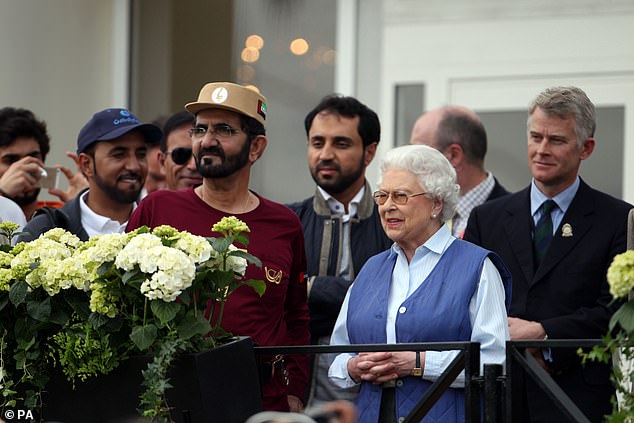
The Sheikh was close friends with Queen Elizabeth II, after the pair bonded over their love of horse racing (pictured at the Royal Windsor Horse Show in 2014)
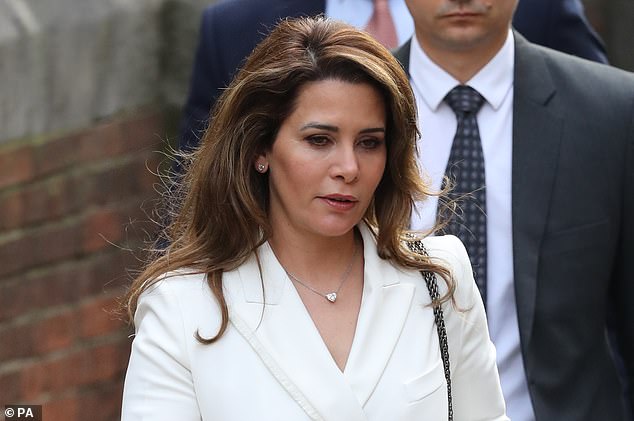
Princess Haya bint Al Hussein outside the Royal Courts of Justice in 2020 in the thick of her hugely expensive divorce proceedings


The court found the Sheikh had likely abducted Princesses Shamsa and Latifa (above, left and right), two daughters he had with another of his wives
The £554m payout is the biggest ever agreed in Britain – but was, astonishingly, £900million less than what her lawyers were demanding.
And it came tax free, as the princess is a member of Jordan’s diplomatic mission, despite living in a plush £100m mansion in Kensington.
The total legal bill came to somewhere in the region of £70million.
Sheikh Mohammed – a close friend of the late Queen Elizabeth II, who bonded with her over their mutual love of horse racing – was also found to have had his agents ‘hack’ the phones of his ex-wife and her lawyers.
Among the targets of the hack – which he denied – was the fearsome solicitor Baroness Fiona Shackleton, also known as Steel Magnolia, who has represented the likes of Sir Paul McCartney and the then-Prince Charles in divorce proceedings.
The Sheikh’s spokespeople said following the December 2021 ruling: ‘The court has now made its ruling on finances and he does not intend to comment further.’
The princess was subsequently granted full custody of her children in March 2022.
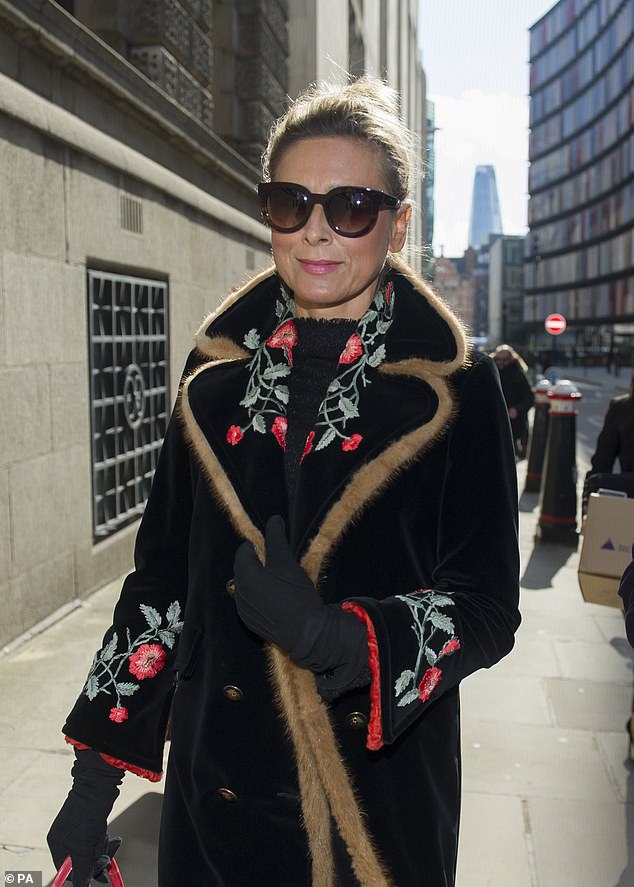
Tatiana Akhmedova was divorced from her Russian oligarch husband in 2000 – but sued him for financial restitution in 2013 after he sold his stake in ZAO Northgas for $1.375billion
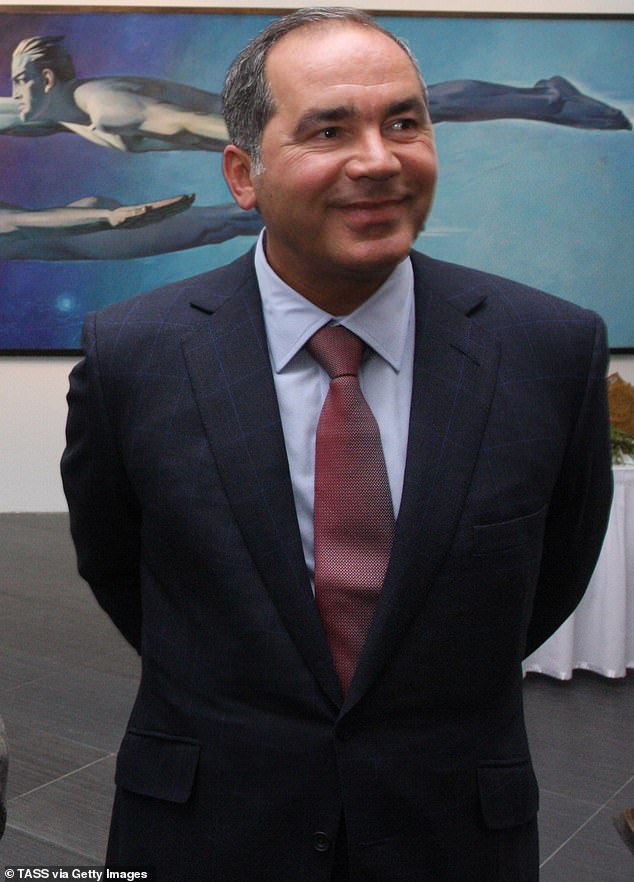
Farkhad Akhmedov was found by judges to have embarked on an ambitious scheme to hide his wealth
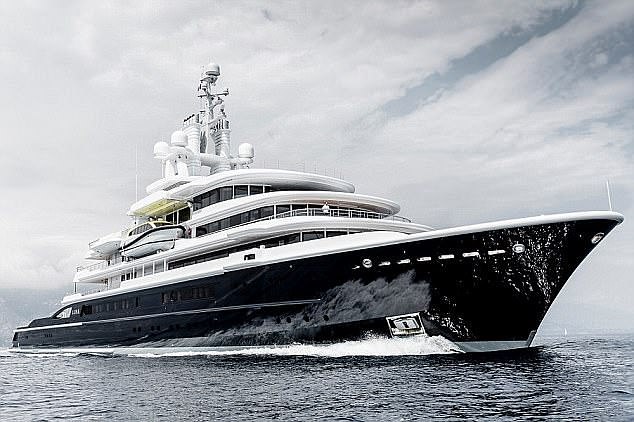
Ms Akhmedova had tried to claim the superyacht Nova, which Akhmedov had purchased from Roman Abramovich – but failed after a court ruled it couldn’t be taken from Dubai
The Russian oligarch who tried to hide his millions
A messy scrap between a Russian billionaire businessman and his ex-wife saw her give up a bid to claim his £200m superyacht as her own – because it was registered in Dubai.
Farkhad Akhmedov and Tatiana Akhmedova – later Soroka – were married for 20 years, enjoying a lavish lifestyle after he made millions from his early investment in, and subsequent takeover of, Russian gas firm ZAO Northgas.
But the Azerbaijan-born businessman filed for divorce in Russia in 2000. Twelve years later, he sold his stake in Northgas for $1.375 billion.
Ms Soroka then filed a petition for financial relief in 2013 – prompting him to embark on what judges said was a scheme to hide as much of his wealth from her as possible, scattering it across the world.
Heartbreakingly, the scheme involved their eldest son Temur, who was transferred eye-watering sums of money and given property to hide it from his mother.
The courts said he ‘lied… breached court orders; and failed to provide full disclosure of his assets’ – following orders as he was ‘utterly dependent on his father for financial support’.
In 2016, judges ruled that she should be awarded what was then the UK’s biggest ever divorce settlement of £453million, comprised of a £350million lump sum plus property.
Akhmedov refused to recognise the settlement, prompting the court to freeze his assets.
Ms Soroka said she received only a few ‘trinkets’, and set her sights on a bigger target: his £200million superyacht, Luna, bought from ex-Chelsea owner Roman Abramovich.
The 377ft (115m) expedition yacht is the world’s second largest, and boasts two helipads, a pool and mini submarine.
She tried to seize the vessel with the help of a crack squadron made up of former members of the elite British Special Boat Service – the water-bound answer to the SAS.
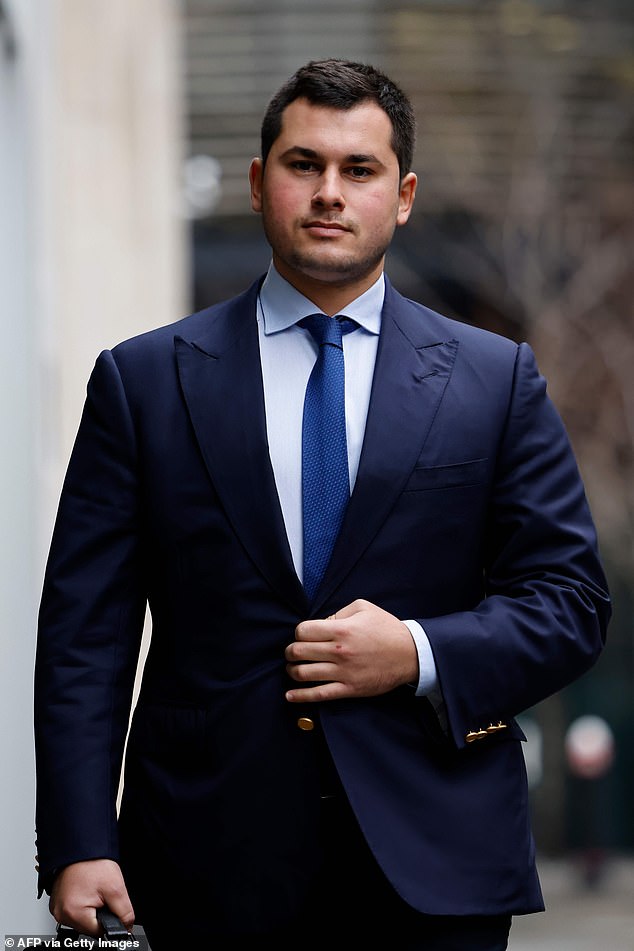
The case saw a bitter split emerge in the Akhmedov family as it emerged that Ms Soroka’s son Temur had helped his father to hide money

Despite winning her case, Ms Soroka later sued her own lawyer – Baroness Shackleton (pictured above with Ms Soroka) – over her perceived failure to seize the yacht
But despite winning a court case in the Marshall Islands, where the yacht was registered, that paved the way for the boat to be handed over, the court there later told Ms Akhmedova that it could not compel Dubai authorities to surrender it.
A judge would later note she had been the ‘victim of a series of schemes designed to put every penny of (her) husband’s wealth beyond her reach.’
Ms Soroka, described as being ‘very nervous’ at having to give evidence against one of her own children and occasionally on the verge of tears, was ultimately awarded £150million, half of which she had to pay to a financial backer.
She ultimately attempted to sue her own lawyer – ‘Steel Magnolia’ Baroness Shackleton, at the coal face of another high-profile divorce battle – over the failure to claim the yacht, which was later found docked in Miami.
The Baroness’ firm, Payne Hicks Beach (PHB), denied allegations of negligence. Ms Soroka last month served a ‘notice of discontinuance’ – a formal end to her legal proceedings against the firm.
Quoting the opening line of Tolstoy’s Anna Karenina, Mrs Justice Knowles observed: ‘All happy families are alike, each unhappy family is unhappy in its own way… the Akhmedov family is one of the unhappiest ever to have appeared in my courtroom.’
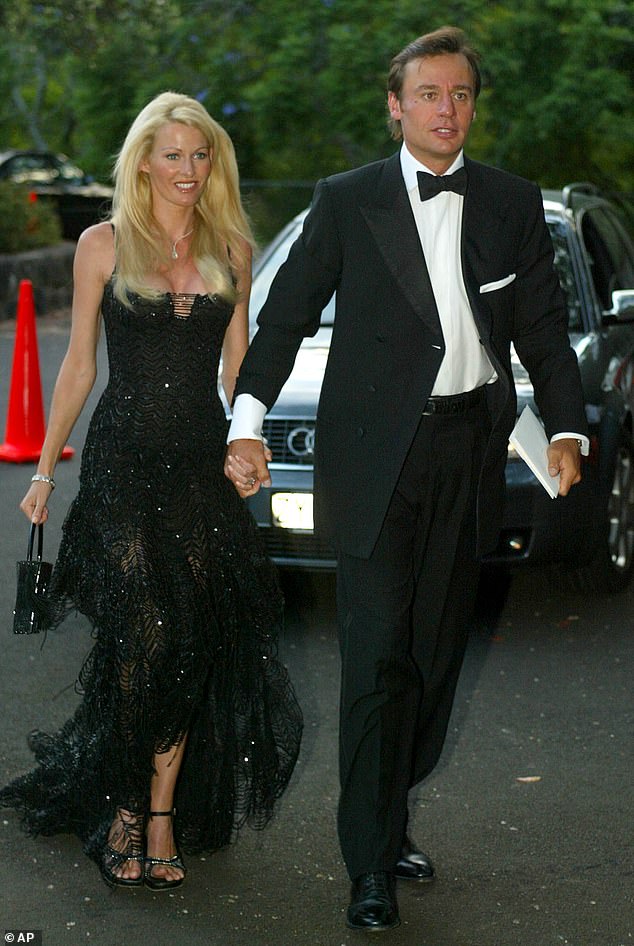
Former Miss UK Kirsty Roper married businessman Ernesto Bertarelli in 2000 after meeting him in Italy on holiday (pictured in 2003)

She was named Miss UK in 1988 and went on to be named runner-up in Miss World that year (pictured right, with Miss World Linda Petursdottir, centre, and Miss Korea Yeon-He Choi, left)
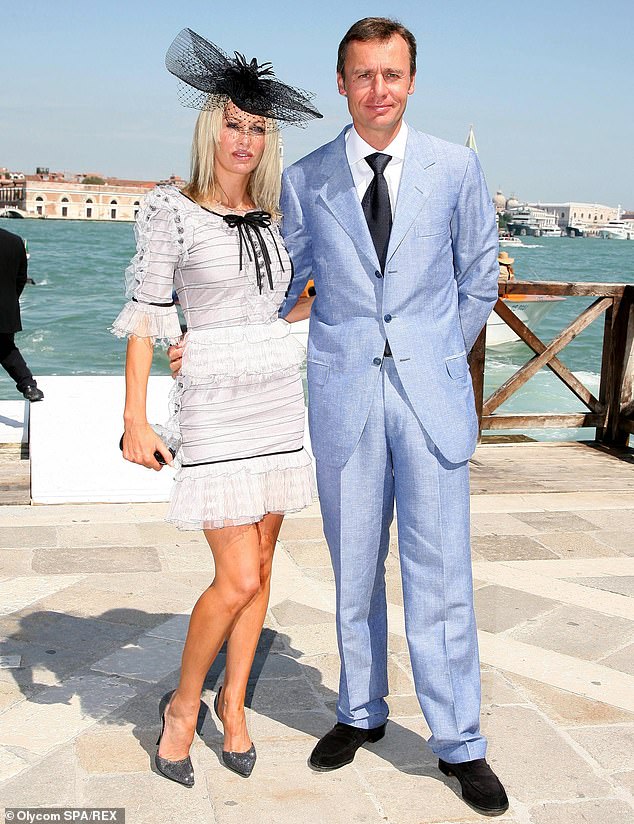
The couple are believed to have divorced sometime in the summer of 2021 – but the settlement was reached behind closed doors
The songwriter who became Britain’s richest divorcee
Former Miss UK Kirsty Roper married Swiss billionaire Ernesto Bertarelli in 2000 after meeting him on holiday in Italy three years prior.
But by the summer of 2021, the marriage had fallen apart and, after some frank and ‘amicable’ discussions, the pair had split and filed for divorce.
And in being granted £400million in what the parties said was an amicable split, she became the beneficiary of the largest divorce payment for a British-born individual to date.
Unlike the other court battles listed here, which were fought out in public, discussions between Ms Roper and Mr Bertarelli took place behind closed doors.
She is believed to have signed a prenuptial agreement before marrying the Italian-born businessman.
Alongside a £350m lump sum, she was also handed the keys to a £52million home in Switzerland – to go with her £8million Swiss ski chalet.
One of her friends told the Mail: ‘The settlement was more generous than it had to be. They didn’t want a long, drawn-out court case in Switzerland and he wanted to recognise the length of their marriage.’
Mr Bertarelli needn’t stress: his personal net worth is, as of 2025, somewhere in the region of $11.6billion – and his wider family is worth more than twice that, having inherited drug manufacturer Serono alongside his sister.
After being crowned Miss UK in 1988, Kirsty was second runner-up in that year’s Miss World pageant.
She then became a successful songwriter, co-writing All Saints’ No 1 single Black Coffee, a worldwide hit in 2000.
Ms Roper’s family once owned Churchill China, the world-renowned pottery maker based in Stoke-on-Trent.
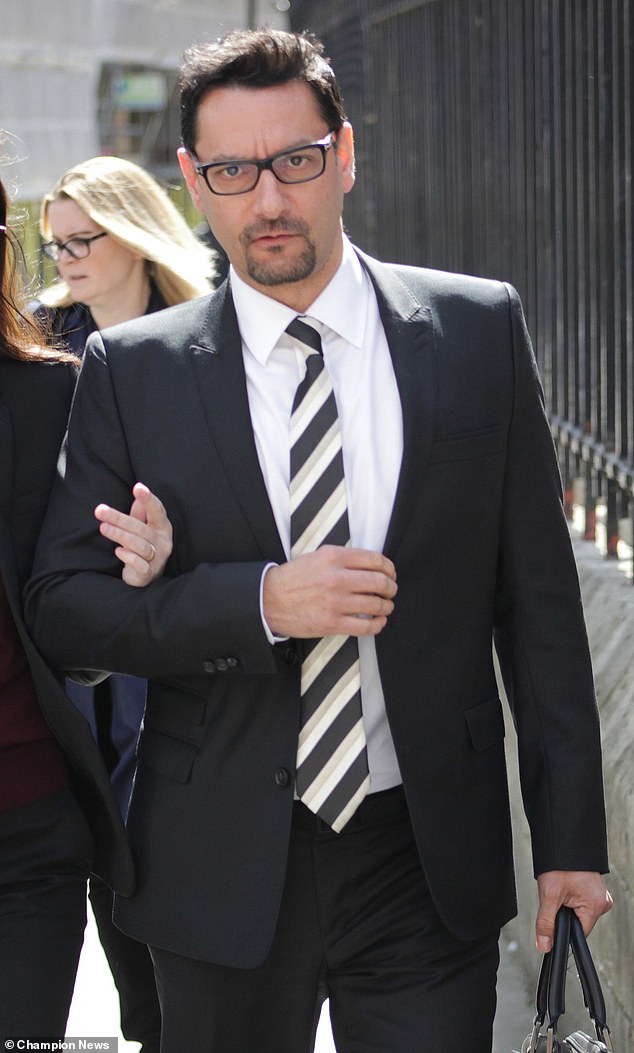
Barrister Jason Galbraith-Marten KC found himself the target of legal action from his ‘nasty, vindictive and self-absorbed’ ex-wife Catherine de Renée
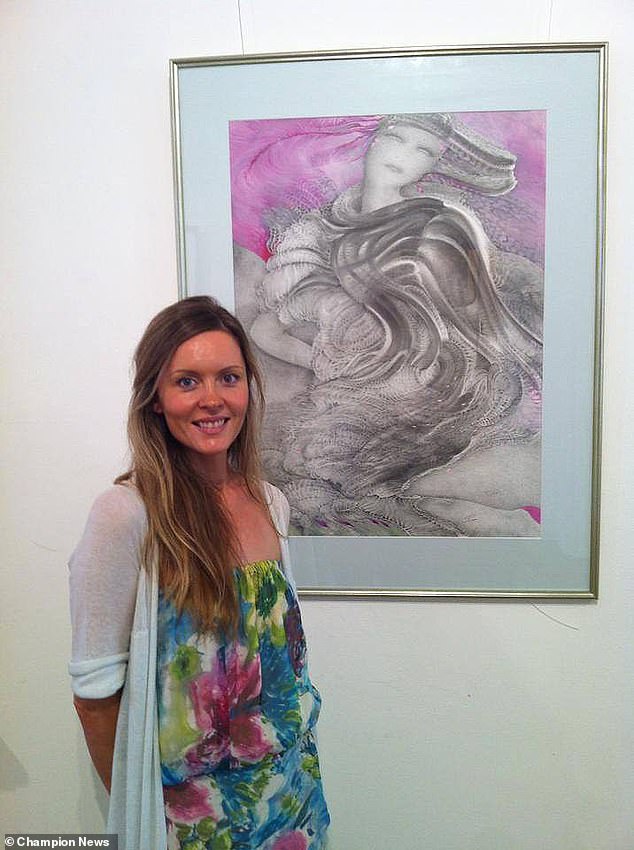
Ms de Renée attempted to seek additional financial restitution following their divorce from outside of the UK – later moving to London to better her chances
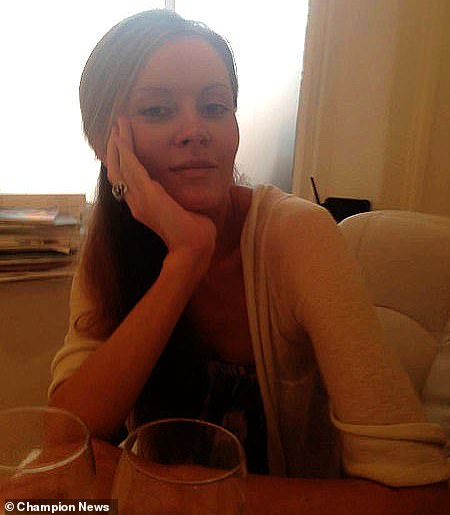
But the courts have agreed to impose an extension on a civil restraining order after she made a series of false allegations against her ex-husband
The barrister vs. the ‘sensual’ painter
This week, top barrister Jason Galbraith-Marten KC and his Australian painter ex-wife Catherine de Renée’s messy divorce fight came to a head after 16 years of scrapping in the British courts, as well as Down Under.
Ms de Renée, 44, who specialises in ‘sensual’ female portraits, was unhappy at being handed £72,500 of marital assets in Australia.
She maintains she was left relying on benefits while her ex, reportedly a millionaire, continued living in their £1.6million home in Fulham, west London, with his new flame.
The case, while not among the most expensive, highlights how British courts can be weaponised by foreign individuals to fight out their break-ups.
This practice, of attempting to change legal jurisdiction to find one that best suits your case, is known as ‘forum shopping’ or ‘divorce tourism’.
Painter Ms de Renée, who describes her work as being filled with ‘drama, intensity and lingering eroticism’, tried to bring a legal bid in the UK courts as a foreigner, which failed in 2016.
She then moved to London the next year, and continued her pursuit of what judges called ‘nasty, vindictive and self-absorbed’ legal action against her ex-husband.
Child maintenance payments were upped from £1,315 to £2,684 a month after a successful legal action against Mr Galbraith-Marten; then his counter-suit brought the bill back down to £1,960.
But judges were deeply concerned by her persistent – and at times contentious – litigation.
Mr Justice Cobb, in a December 2023 judgment, said of Ms de Renée: ‘She has spent all of (her daughter’s) life putting her own warped sense of reality before any care or consideration of (her daughter’s) best interests.’
But judges hit pause on her furious litigating after she made a series of ‘fabricated’ allegations against her ex, ranging from attempted murder to attacking her cat.
A civil restraining order was granted in 2019, extended to 2024, and then extended again for a further two years after a hearing that concluded this week.
The same judge later labelled the entire affair’depressing’ – and said the ban on Ms de Renée’s ‘vexatious’ proceedings would free up the court for worthier cases.







